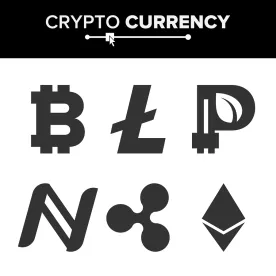On September 11, 2018, the U.S. District Court for the Eastern District of New York denied[1] a motion to dismiss an indictment of a Brooklyn real estate entrepreneur in relation to two virtual currency investment schemes and initial coin offerings (“ICOs”). The indictment, which charged securities fraud against Maksim Zaslavskiy, was based, in part, on the theory that the cryptocurrencies at issue were securities. In his motion to dismiss, Zaslavskiy argued that this premise was faulty and the ICOs offered by the two companies he owned, REcoin Group Foundation, LLC (“REcoin”) and DRC World, Inc. (“DRC”), were not, in fact, securities. The court, then, was called upon to consider whether the securities laws apply to cryptocurrencies. The court also considered Zaslavskiy’s argument that the securities laws are void for vagueness as applied to cryptocurrencies and token sales.
Zaslavskiy established REcoin Group and DRC in 2017. According to the decision, REcoin was engaged in the business of investing in real estate and developing related contracts. The indictment alleged that Zaslavskiy misrepresented to investors that token offered by REcoin was a new blockchain virtual currency backed by real estate investments. He also advertised investments into REcoin as a way to protect the investor’s earnings from inflation. Further, Zaslavskiy predicted an annual profit of 9 – 67%. REcoin never purchased any real estate and no REcoin token was ever developed. Based on the alleged misrepresentation, however, Zaslavskiy induced approximately 1,000 investors to purchase REcoin token. Similarly, Zaslavskiy represented to investors that DRC was engaged in the business of investing in diamonds. He promoted a virtual ecosystem that offered “cryptocurrency” tokens hedged with diamonds, which he referred to as “real world assets,” through DRC. Zaslavskiy told investors that DRC expected a minimum growth of 10% to 15% per year. The government alleged that DRC never purchased any diamonds.
In his motion to dismiss, Zaslavskiy argued that the indictment should be dismissed because tokens offered by REcoin Group and DRC are currencies, not securities. The court, however, rejected the argument and denied the motion to dismiss.
In reaching its decision, the court looked to the original purpose of the securities laws and determined that Congress’ aim was to regulate investments, in whatever form they are made and by whatever name they are called.[2] Accordingly, the court ruled that whether ICOs at issue were investments was a question of fact to be determined by jurors. The court also held that It did not matter that Zaslavskiy labelled the ICOs as an exchange of currencies.[3]
The court then moved to its analysis of whether the ICOs were investment contracts under the test articulated by the Supreme Court in SEC v. W.J. Howey Co., 328 U.S. 293 (1946). This test asks whether the investment at issue is a “contract, transaction, or scheme whereby a person (1) invests his money (2) in a common enterprise and (3) is led to expect profits solely from the effort of the promoter or third party.”[4] Here, the court determined that the indictment alleged that investors exchanged money—or other assets—for investment in what they were told was investment-backed virtual tokens or coins. The profits made by REcoin and DRC were to be distributed to investors pro-rata—given that investors were promised “tokens” or “coins” in exchange for, and proportionate to, their investment interests in the schemes. Further, the indictment alleged that Zaslavskiy had advertised that he and other skilled professionals would use their expertise in real estate and diamonds to generate profits for investors. In other words, the profits were to be generated by Zaslavskiy and his team, not by investors. Applying these factors, the court determined that token sales constitute an investment contract.
The court then took up Zaslavskiy’s argument that the securities laws are void for vagueness argument, concluding that the Securities Exchange Act and the definition of “investment contract” set forth in Howey is sufficiently clear when applied to cryptocurrencies. The court considered whether the statute gives the person of ordinary intelligence a reasonable opportunity to know what is prohibited, and whether the law provides explicit standards for those who apply it.[5] Accordingly, the court held that “the [Securities] Exchange Act and Rule 10b-5 set forth the types of behavior that constitute securities fraud, and Howey and its progeny set forth the standards needed to cabin their enforcement relative to investment contracts.”[6] As a result, the court held that securities laws were not void for vagueness, regardless of whether an alleged securities fraud involved cryptocurrency or not.
This is the first criminal case in which a federal court considered whether a cryptocurrency can be regarded as a security. Until now, most criminal cases involving cryptocurrency concerned whether dealing in virtual currency involved unlicensed money transmitting[7] or money laundering[8] and other federal court decisions addressing whether cryptocurrencies are securities were decided in the civil realm.
[1] U.S. v. Zaslavskiy, 17 CR 647 (RJD), 2018 WL 4346339 (E.D.N.Y. Sept. 11, 2018).
[2] Ibid at *3.
[3] Ibid at *5.
[4] S.E.C. v. W.J. Howey Co., 328 U.S. 293, at *298 (1946).
[5] U.S. v. Zaslavskiy, 17 CR 647 (RJD), 2018 WL 4346339, at *8 (E.D.N.Y. Sept. 11, 2018).
[6] Ibid at *9.
[7] See U.S. v. Mansy, 2:15-CR-198-GZS, 2017 WL 9672554 (D. Me. May 11, 2017).
[8] See U.S. v. Budovsky, 13CR00368 (DLC), 2016 WL 386133, at *1 (S.D.N.Y. Jan. 28, 2016).



 />i
/>i

